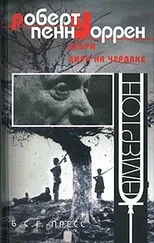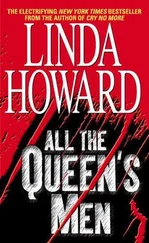Роберт Уоррен - All the king's men
Здесь есть возможность читать онлайн «Роберт Уоррен - All the king's men» весь текст электронной книги совершенно бесплатно (целиком полную версию без сокращений). В некоторых случаях можно слушать аудио, скачать через торрент в формате fb2 и присутствует краткое содержание. Жанр: Современная проза, на английском языке. Описание произведения, (предисловие) а так же отзывы посетителей доступны на портале библиотеки ЛибКат.
- Название:All the king's men
- Автор:
- Жанр:
- Год:неизвестен
- ISBN:нет данных
- Рейтинг книги:4 / 5. Голосов: 1
-
Избранное:Добавить в избранное
- Отзывы:
-
Ваша оценка:
- 80
- 1
- 2
- 3
- 4
- 5
All the king's men: краткое содержание, описание и аннотация
Предлагаем к чтению аннотацию, описание, краткое содержание или предисловие (зависит от того, что написал сам автор книги «All the king's men»). Если вы не нашли необходимую информацию о книге — напишите в комментариях, мы постараемся отыскать её.
All the king's men — читать онлайн бесплатно полную книгу (весь текст) целиком
Ниже представлен текст книги, разбитый по страницам. Система сохранения места последней прочитанной страницы, позволяет с удобством читать онлайн бесплатно книгу «All the king's men», без необходимости каждый раз заново искать на чём Вы остановились. Поставьте закладку, и сможете в любой момент перейти на страницу, на которой закончили чтение.
Интервал:
Закладка:
"It will be a March murder," Anne said, "right now." Then she smiled, and the blood subsided in her cheeks, and she put out her hand to Slade.
"Glad ter meetcha," Slade said, and though the face which he exhibited might well have belonged to a wooden Indian, the eyes in it didn't miss any of the details suggested by the coat suit. "How about a drink?" he asked.
"Thank you," Anne said, and settled on a Martini After the drink, she said, "Jack, we've got to go," thanked Slade again, and led me away into the night full of neon lights, gasoline fumes, the odor of roasted coffee, and the honk of taxis.
"You have a wonderful sense of humor," she said.
"Where are we going? I sidestepped her remark.
"You are such a smart aleck."
"Where are we going?"
"Aren't you ever going to grow up?"
"Where are we going?"
We were walking aimlessly down the side street past the swinging doors of the bars and oyster joints and past newsstands and old women selling flowers. I bought some gardenias, gave them to her, and said, "I reckon I am a smart aleck, bit it is just a way to pass the time."
We walk on another half block, threading through the crowd that drifted and eddied in and out of the swinging doors.
"Where are we going?"
"I wouldn't be going anywhere with you," she said, "if I didn't have to talk to you."
We were passing another old woman selling flowers. So I took another bunch of gardenias, laid down my four bits, and shoved the blossoms at Anne Stanton. "If you can't be civil," I said, "I'm going to smother you in these damned things."
"All right," she said, and laughed, "all right, I'll be good." And she swung on to my arm and matched her step to mine, holding the flowers in her free hand, her bag tucked under the off elbow.
We kept step, not talking for a half block. I looked down, watching her feet flick out, one-two, one-two. She was wearing black suède shoes, very severe, very mannish, and she clicked the pavement with authority, but they were small and the fine ankles flickered, one-two, one-two, hypnotically.
Then I said, "Where are we going?"
"To walk," she said, "just walk. I'm too restless to be still."
We walked on, down toward the river.
"I had to talk to you," she said.
"Well, talk then. Sing. Spill."
"Not now," she said soberly and looked up at me and I saw in the light of the street lamp that her face was very serious, even worried. The flesh seemed smoothed back, even painfully taut over the wonderful perfection of the bone structure of her face. There wasn't any waste material in that face, and always there was a hint in it of a trained-down, keyed-up intensity, though an intensity kept under the smooth surface of calm, like a flame behind glass. But the intensity was keyed up more than usual, I could see. And I had the feeling that id you turned the wick up a fraction the glass might crack.
I didn't reply, and we took a few more paces. Then she said, "Later. Now just walk."
So we walked. We had left the streets where the bars and pool-rooms and restaurants were, and the blare or whimper of music from beyond the swinging doors. We passed down a grubby, dark street where a couple of boys scurried along by the walls of the houses, uttering short, lost-sounding, hollow calls, like marsh birds. The shutters were all closed on these houses, with here and there a tiny chink of light showing, or perhaps the faint sound of voices. Later in the spring, when the weather turned, people would be sitting out on the sidewalk stoops here in the evenings, talking back and forth, and now and then, if you were a man passing, one of the women would say in a conversational tone, "Hey, bud, you want it?" For this was he edge of the crib section, and some of these houses were cribs. But at this season, at night, whatever kinds of life were in those houses–the good life and the bad life–were still withdrawn deep inside the old husks of damp, crumbling brick or flaking wood. A month from now, in early April, at the time when far away, outside the city, the water hyacinths, would be covering every inch of bayou, lagoon, creek, and backwater wit a spiritual-mauve to obscene-purple, violent, vulgar, fleshy, solid, throttling mass of bloom over the black water, and the first heartbreaking, misty green, like girlhood dreams, on the old cypresses would have settled down to be leaf and not a damned thing else, and the arm-thick, mud-colored, slime-slick moccasins would heave out of the swamp and try to cross the highway and your front tire hitting one would give a slight bump and make a sound like _kerwhush__ and a tiny thump when he slapped heavily up against the underside of the fender, and the insects would come boiling out of the swamps and day and night the whole air would vibrate with them with a sound like an electric fan, and if it was night the owls back in the swamps would be _whoo__ing and moaning like love and death and damnation, or one would sail out of the pitch dark into the rays of your headlights and plunge against the radiator to explode like a ripped feather bolster, and the fields would be deep in that rank, hairy or slick, juicy, sticky grass which the cattle gorge on and never get flesh over the ribs for that grass is in that black soil and no matter how far the roots could ever go, if the roots were God knows how deep, there would never be anything but that black, grease-clotted soil and no stone down there to put calcium into that grass–well, a month from now, in early April, when all those things would be happening beyond the suburbs, the husks of the old houses in the street where Anne Stanton and I were walking would, if it were evening, crack and spill out onto the stoops and into the street all that life which was now sealed up within.
But now the street was blank, and dim, with a leaning lamppost at the end of the block, and the cobbles oily-greasy-glimmering in its rays and the houses shuttered, and the whole thing looked like a set for a play. You expected to see the heroine saunter up, lean against the lamppost and light a cigarette. She didn't come, however, and Anne Stanton and I walked straight through the set, which you knew was cardboard until you put out your hand to touch the damp, furry brick or spongy stucco. We walked on through without talking. Perhaps for the reason that if you are in a place like that which looks like a cardboard stage set and is so damned _q-u-a-i-n-t__, whatever you say will sound as though it had been written by some lop-haired, swivel-hipped fellow who lived in one of those cardboard houses in an upstairs apartment (overlooking the patio–Oh, Jesus, yes, overlooking the patio) and wrote a play for the Little Theater which began with the heroine sauntering into a dim street between rows of cardboard houses and leaning against an askew lamppost to light a cigarette. But Anne Stanton was not that heroine, so she didn't lean against the lamppost and didn't say a word, and we kept on walking.
We walked on down till we came to the river, where the warehouses were and the docks fingered out into the water. The metal roofs of the docks glimmered dully in the rays of the street lamps. Above the pilings of the docks a thick tangle of mist coiled and drifted, broken here and there to show the sleek, velvety, motionless water, which glimmered darkly like the metal of the roofs, or like a seal's black, water-slick fur. A few docks down, the stubby masts of freighters were barely visible against the dark sky. Somewhere downstream a horn was hooting and moaning. We moved along beside the docks, looking out into the river, which was tufted and matted over the blackness with the scraggly, cirrus, cottony mist. But the mist stayed close to the surface of the river, and to look out over it made you think of being on a mountain at night and looking for miles out over clouds below. There were a few lights over on the far shore.
Читать дальшеИнтервал:
Закладка:
Похожие книги на «All the king's men»
Представляем Вашему вниманию похожие книги на «All the king's men» списком для выбора. Мы отобрали схожую по названию и смыслу литературу в надежде предоставить читателям больше вариантов отыскать новые, интересные, ещё непрочитанные произведения.
Обсуждение, отзывы о книге «All the king's men» и просто собственные мнения читателей. Оставьте ваши комментарии, напишите, что Вы думаете о произведении, его смысле или главных героях. Укажите что конкретно понравилось, а что нет, и почему Вы так считаете.





![Роберт Уоррен - Рассказы [Компиляция]](/books/419993/robert-uorren-rasskazy-kompilyaciya-thumb.webp)


